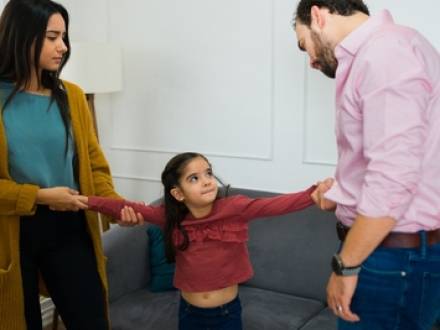Can My Ex Homeschool Our Child If I Disagree?
Posted on July 24, 2024 in Child Custody
 Child custody issues and the determination of parental responsibilities can be like landmines that parents must navigate to arrive at solutions that are in the best interests of the child. Perhaps you and your ex have come through the child custody issues with a parenting plan you can both live with. Then, out of the blue, your ex informs you they have decided to homeschool your child or children. You may have serious doubts about the advisability of such a decision.
Child custody issues and the determination of parental responsibilities can be like landmines that parents must navigate to arrive at solutions that are in the best interests of the child. Perhaps you and your ex have come through the child custody issues with a parenting plan you can both live with. Then, out of the blue, your ex informs you they have decided to homeschool your child or children. You may have serious doubts about the advisability of such a decision.
Maybe you do not think your child will receive a well-rounded education in a homeschooling situation, or maybe you doubt your ex’s ability to teach the subjects you feel your child needs to learn. You may be more concerned about the social aspect of homeschooling or the lack of extracurricular activities. Whatever your concerns, this decision may come down to the custody agreement and division of parental responsibilities you have with your ex. An experienced family law attorney from Andrew Cores Family Law Group can answer your questions and guide you through the process of challenging a homeschooling decision by your ex.
How Are the Best Interests of the Child Determined?
750 ILCS 5/602.7 discusses the best interests of the child at length, and these guidelines are always implemented when making important decisions on behalf of a child. Regarding homeschooling, family courts may be wary of the potential lack of social interaction for a homeschooled child. However, harmful peer pressure or bullying, often seen in public schools, can bring its own set of problems. Parents may contemplate homeschooling for a variety of reasons, including beliefs, morals, family fortification, curriculum choices, and flexibility.
Depending on the situation, lack of peers and limited access to traditional educational resources can be disadvantages. In any case, for homeschooling to yield positive results, both parents need to reach a consensus and present a united front. Reaching an agreement with your ex is usually better than letting the court make such a major decision for your child; if no agreement can be reached, collaborative law might be a consideration.
How Your Child Custody Agreement Can Determine a Homeschooling Issue
Whether or not you have a say in whether your child will be homeschooled depends largely on the custody agreement you have with your ex. This includes legal custody and physical custody. If you share joint legal custody with your ex, this means both parents share equally in making major decisions for the child, including decisions regarding education, healthcare, religion, and extracurricular activities.
Joint legal custody also involves sharing parenting time, but the manner in which physical custody is shared will depend on the parenting plan in place. While "ideally," parents will work together to reach an agreement, but if they cannot, the court will make decisions for them. So, if you have joint legal custody with your ex, you do have a say in whether the child is homeschooled, goes to a public school, or attends a private school.
If you do not have joint legal custody, your ex can make a decision regarding homeschooling without your agreement. If you feel strongly enough that homeschooling your child is not in their best interests, you can return to court to present the issue to a judge. The court functions as a mediator when the parents cannot agree and will listen to information presented by both parents before they make a decision.
A parent who knows during the divorce that they want to homeschool should not enter into a joint legal or physical custody arrangement unless they are sure the other parent feels the same. Homeschooling can be a contentious topic—and one that parents usually feel strongly about one way or another. Because of this, it is better to reach agreements about education during the custody part of your divorce.
Contact a DuPage County, IL Parental Responsibilities Attorney
Homeschooling disputes between divorced parents is certainly a challenge, but it is possible to find a resolution that everyone involved can live with. An experienced Wheaton, IL parental responsibilities lawyer will assess the situation, consider the best interests of the child, and try to reach an agreeable resolution. An attorney from Andrew Cores Family Law Group can provide straightforward advice and trustworthy representation. As a Fellow of the Collaborative Law Institute of Illinois, we are ready to help you solve your homeschooling issue. Contact Andrew Cores Family Law Group at 630-871-1002 to schedule a free consultation.







 Child custody issues and the determination of
Child custody issues and the determination of
